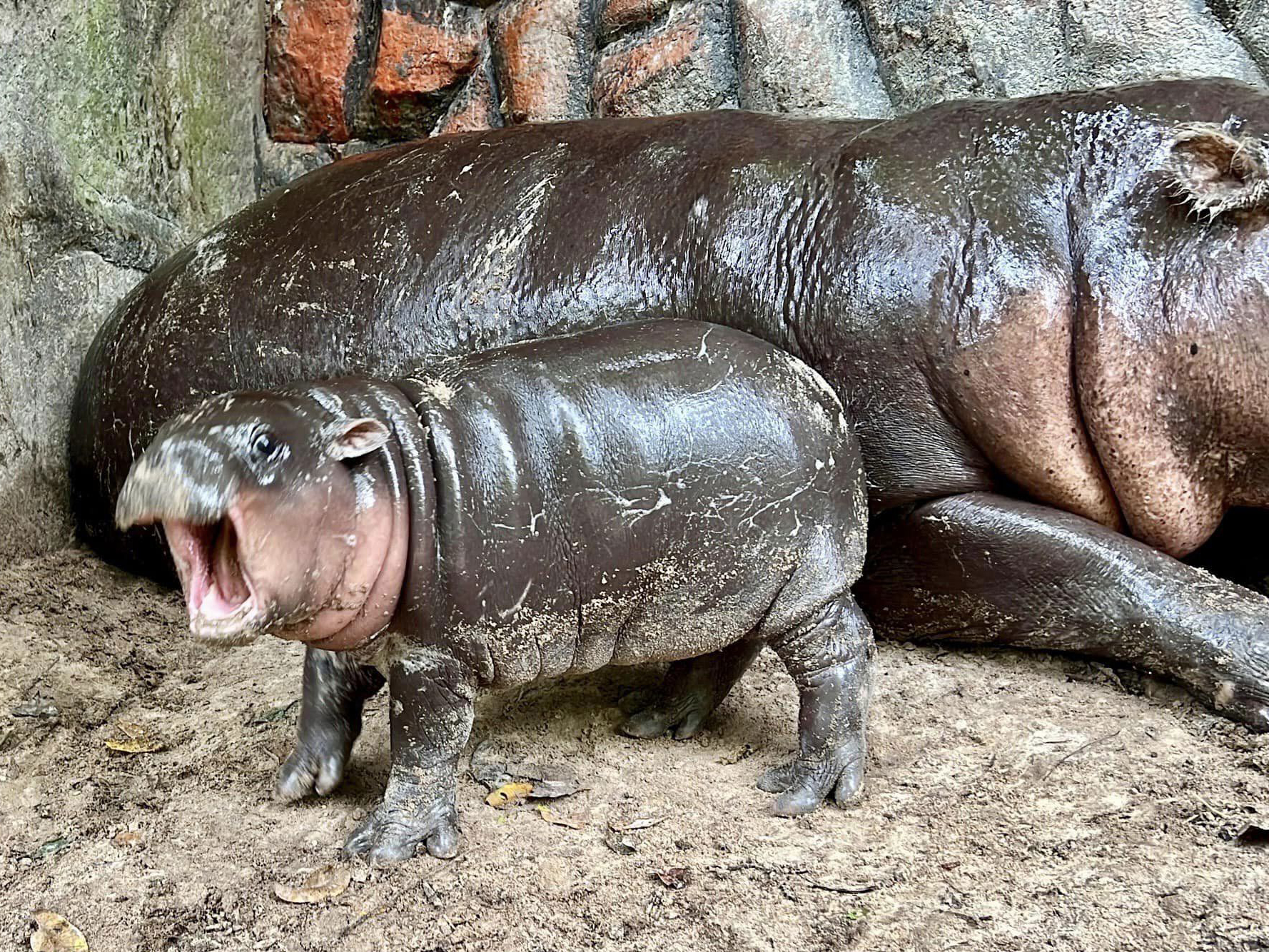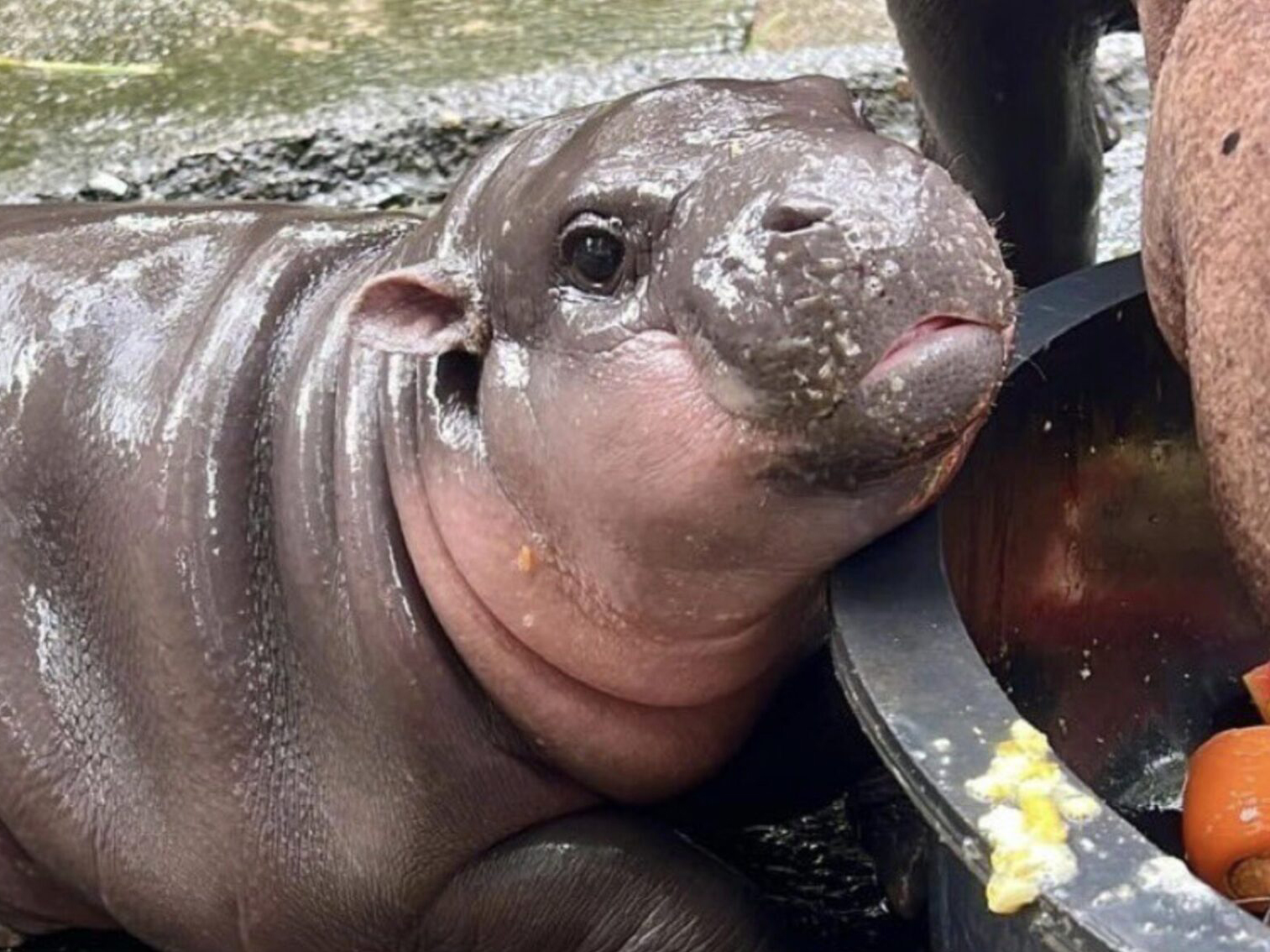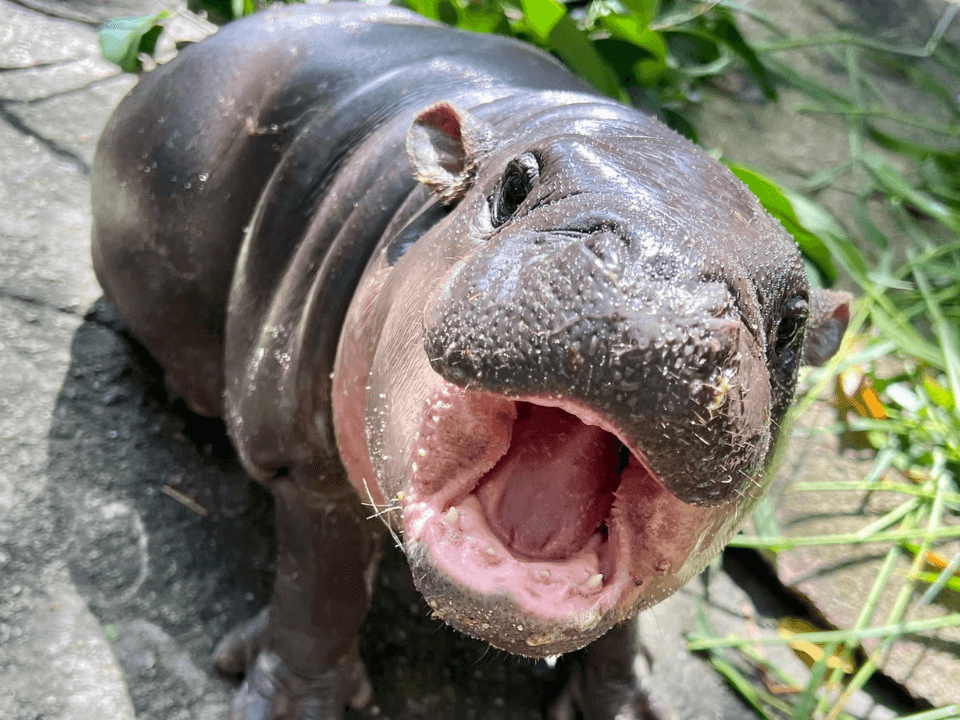Lifestyle and tips
What is Moo Deng? Why This Viral Hippo is Taking the Internet by Storm
What is Moo Deng? This is a baby pygmy hippo named Moo Deng has captured the hearts of millions across the globe. Known for her adorable antics and meme-worthy moments, Moo Deng has become an internet sensation, sparking both joy and debate. This article dives into who Moo Deng is and why this little hippo has taken the internet by storm, touching on everything from her origins at Thailand’s Khao Kheow Open Zoo to the viral appeal that has catapulted her into global fame.
Where is Moo Deng hippo?
Moo Deng is a pygmy hippo born at the Khao Kheow Open Zoo in Thailand, and she has rapidly gained worldwide attention. The name Moo Deng, which translates to “bouncy pork” in Thai, reflects her playful and cute demeanor. Unlike their larger counterparts, pygmy hippos are much smaller, and Moo Deng’s petite size and round appearance have made her an instant hit online As a baby pygmy hippo, Moo Deng’s natural charm and unique look have sparked fascination.
This pygmy hippo belongs to a species that is considered endangered, adding to the global attention she has received. Beyond her adorable features, Moo Deng also represents a critical opportunity to raise awareness about the conservation efforts surrounding these rare creatures.

The Rise of Moo Deng: How She Went Viral
Moo Deng’s rise to internet fame was swift, largely thanks to the power of social media. Her playful moments, captured by zoo visitors and caretakers, were quickly shared across various platforms like Instagram, TikTok, and YouTube, racking up millions of views. People couldn’t get enough of her cute behavior, such as mini moonwalks, belly slides, and interactions with other animals
Viral content creators and meme pages seized the opportunity to spread Moo Deng’s fame, creating humorous captions that showcased her quirky personality. Major news outlets, including NBC and AP News, featured stories about the pygmy hippo, further fueling her popularity. Even celebrities began sharing her photos and videos, helping her reach an even broader audience.
The combination of Moo Deng’s undeniable cuteness and her rarity as an endangered pygmy hippo has made her a symbol of joy and fascination, captivating internet users across the globe.
Why is Moo Deng So Popular?
Moo Deng’s rapid rise to fame can be attributed to her irresistible charm and how perfectly she fits into today’s viral culture. As a baby pygmy hippo, Moo Deng stands out for her unique physical traits – small, round, and constantly appearing joyful – which makes her an ideal candidate for social media memes. People around the world adore watching her playful behaviors, from splashing in the water to interacting with zoo visitors

The viral appeal of cute animals is well-documented, but Moo Deng’s popularity extends beyond just her physical cuteness. Her relatable, meme-worthy expressions have sparked numerous viral moments on platforms like TikTok and Instagram, where users create humorous captions and memes that resonate with a global audience. As people shared Moo Deng’s videos and photos, her popularity soared, leading to news outlets, influencers, and even celebrities amplifying her online presence
Additionally, Moo Deng’s story touches on broader cultural trends. In a world where internet culture thrives on quick, shareable content, animals like Moo Deng become digital icons. Her story represents not only the cuteness that drives internet virality but also the growing fascination with endangered species, encouraging discussions about wildlife conservation
Controversies and Criticism Surrounding Moo Deng’s Fame
With great fame comes scrutiny, and Moo Deng has not escaped controversy. Several animal rights organizations, including PETA, have raised concerns about the welfare of animals that become internet sensations. Critics argue that zoos may prioritize viral fame over the well-being of the animals, using their internet popularity to drive visitor numbers rather than focus on the ethical care of wildlife
PETA has highlighted that turning animals like Moo Deng into viral content can perpetuate issues of confinement and stress. They argue that while the internet may view Moo Deng as a cute, fun spectacle, the reality of captivity should not be ignored. World Animal Protection and other organizations also joined the conversation, voicing concerns that such viral fame might inadvertently encourage poor animal welfare standards
In response, the Khao Kheow Open Zoo has defended its care practices, emphasizing that Moo Deng is well looked after and that her viral fame has actually helped raise awareness about the conservation of endangered species like the pygmy hippo. Zoo officials have stated that the attention Moo Deng receives also translates to funding and support for their conservation programs
What is Moo Deng’s Current Status and Her Impact on Global Animal Conservation?
Moo Deng continues to thrive at the Khao Kheow Open Zoo, where she remains a star attraction. Her fame has not only drawn large crowds to the zoo but also sparked meaningful conversations about the importance of wildlife conservation. Being an endangered species, pygmy hippos like Moo Deng represent a critical challenge in global conservation efforts, and her viral popularity has raised public awareness about the need to protect these vulnerable animals
Moo Deng’s viral fame serves as a powerful tool for educating the public on the plight of endangered species. As videos and memes of her are shared globally, more people become aware of the importance of protecting animals like pygmy hippos, whose populations are rapidly declining in the wild. The attention Moo Deng has garnered has encouraged donations and support for conservation projects, helping zoos and wildlife organizations fund critical programs
In addition, the zoo has embraced Moo Deng’s influence by integrating her into campaigns aimed at educating visitors about endangered species. Her story has become a platform to advocate for better environmental practices, reminding people that viral fame can be leveraged for meaningful causes, such as raising awareness and driving action toward wildlife preservation
Through Moo Deng, a conversation that began with viral internet content has evolved into a broader movement for animal welfare and conservation. She’s not just a cute face on the internet — Moo Deng represents the potential for digital fame to inspire positive change in how we approach the protection of endangered animals worldwide.
Explore: Moo Deng Can’t Today I’m Swamped Shirt

Conclusion: Moo Deng’s Legacy and the Power of Viral Fame
Moo Deng’s journey from a baby pygmy hippo to an internet sensation is a testament to the unpredictable nature of viral fame. Her adorable antics have not only entertained millions but also shed light on the critical need for wildlife conservation, especially for endangered species like the pygmy hippo. As her fame continues to grow, Moo Deng has become more than just a social media star; she symbolizes the potential for digital culture to inspire awareness and action for global causes.
Through the spread of her videos and memes, Moo Deng has sparked conversations about animal welfare, encouraged visitors to zoos like Khao Kheow Open Zoo, and driven support for conservation initiatives. Her story highlights the intersection of entertainment and education, proving that even the most lighthearted content can have a profound impact on public consciousness and contribute to a greater understanding of the world’s endangered species.
In the end, Moo Deng’s legacy will not just be as a viral hippo but as a symbol of the power of the internet to bring important environmental issues to the forefront. Her influence reaches far beyond her immediate fame, fostering a global dialogue about the future of wildlife conservation and the importance of preserving the planet’s most vulnerable creatures.
